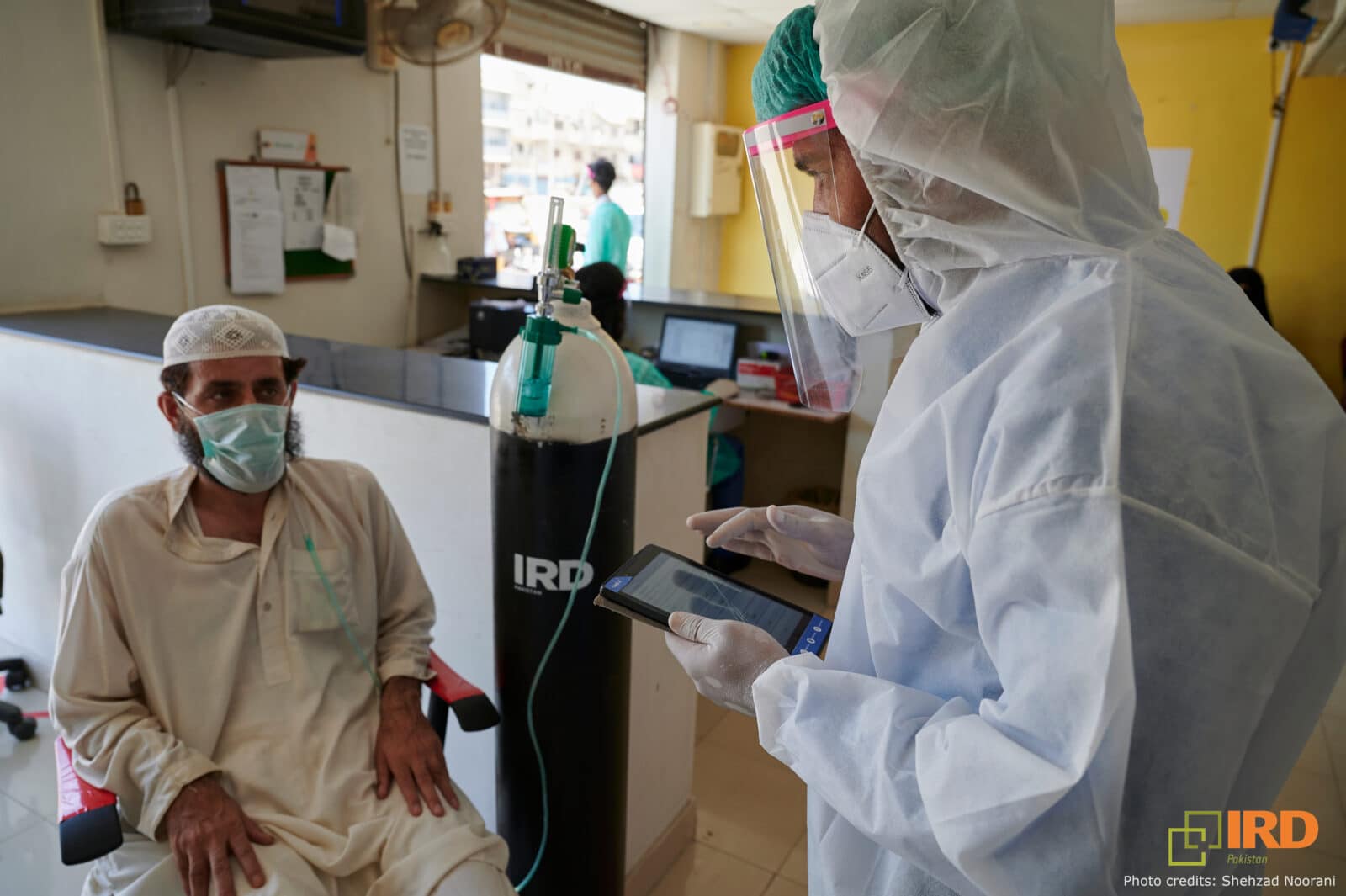Pakistan is fighting its coronavirus battle well and receiving global recognition for it. Today, the country is reporting the lowest COVID-19 numbers of the recent past, both in new infections and fatalities. Resultantly, life has largely resumed across the country as it has returned to the pre-COVID normalcy.
But, as has happened in other countries of the world, the risk of a second wave still looms.
Pakistan’s healthcare infrastructure is admittedly not among the world’s best – it’s frail and faces numerous challenges serving people’s medical needs even in normal circumstances. We must recall how at the pandemic’s peak, signs placed outside of large hospitals directed patients to seek care elsewhere.
Although the government took measures to increase the capacity and efficiency of hospitals in the wake of the coronavirus outbreak, they still lack the capacity to handle another outbreak.
In an event of a second wave that could stretch the healthcare system to its limits again, it would be critical to facilitate lifesaving and preventive services for COVID-19 at a neighborhood level, making early stabilization options – traditionally reserved for patients admitted at hospitals – available closer to home.
To prevent such a crisis, Interactive Research & Development (IRD Global) – a health delivery and public health research organization that works to provide quality healthcare services to underserved communities – has launched an initiative for an Integrated Community Response to the COVID-19 pandemic.
“As the pandemic surges in different locations and at various times, tertiary care facilities are unable to offer an Emergency Room bed with oxygen to patients. An overburdened healthcare system ends up leaving patients – quite literally – gasping for breath,” shares Dr. Aamir Khan, Executive Director of IRD Global.
“With most beds occupied by COVID-19 patients, there is little to no room for an effective response to other medical emergencies and comorbidities such as cardiovascular diseases or surgeries, which lead to increased secondary mortality. To prevent these other deaths, we need to take the burden of mild and moderate COVID-19 disease off of tertiary care hospitals so that they can continue to cater to all types of patients that need care,” he adds.
The IRD Model effectively tackles those challenges. It aims to provide screening, diagnostic and treatment referrals, contact tracing, and early oxygen therapy by fostering partnerships with local private practitioners and primary care clinics. It specifically targets urban slums, which make up 60% of Karachi, and are considered as COVID-19 hotspots due to the densely packed neighborhoods.
The IRD Model also leverages mental health counselors and contact tracers to support patients in isolation, families in quarantine, and overstretched healthcare providers.
“Our mental health teams are providing free-of-cost services to frontline health workers, and COVID-19 patients and families struggling in quarantine. From video counseling and virtual support group sessions to in-person counseling while ensuring staff and patient safety, we’re working to alleviate suffering from heightened feelings of anxiety, stress, and depression,” informs Aneeta Pasha, Country Director for IRD Pakistan and Program Director for Pursukoon Zindagi, IRD’s mental health program.
Moreover, the program is scaling to 10,000 Kiran Sitaras in Karachi – volunteers of IRD’s Youth Empowerment Program – who are educating households on how to wear masks, wash their hands, and maintain physical distancing as best as is feasible. For families with household earners in isolation or quarantine, Kiran Sitaras also encourage neighbors to provide food and water (and sometimes even cash) to households in the greatest need for social support.
IRD is also partnering with private health centers that offer screening and PCR testing for COVID-19 at 120 locations in Karachi by providing pulse oximeters and large-volume oxygen cylinders for free oxygen therapy.
“We have trained 200 staff to support contact tracing efforts in Karachi. Each staff member calls on average 20 COVID-19 positive patients a day, asks questions about their family and other individuals they have come in close contact with, and where appropriate, connects families to nearby testing facilities either in the private or public healthcare sector,” Dr. Kamran Iqbal, Program Manager, IRD Model for COVID-19 Response, adds.
IRD’s contact tracing teams will soon be conducting home visits for especially vulnerable patients and their families, working with them to maintain isolation and quarantine protocols as is feasible.
In using this integrated approach to screen, diagnose, and manage COVID-19 at the neighborhood level, IRD is working to build community- and patient-centered responses to the pandemic in urban centers. By contributing resources and supplying more essential medical and health equipment, individuals can extend their hands and be a part of the IRD Model, taking the entire health system up to the next level of patient-focused care.
For more information about the IRD Model, send your query on WhatsApp: 0335-111-56-00 or email: [email protected].


























